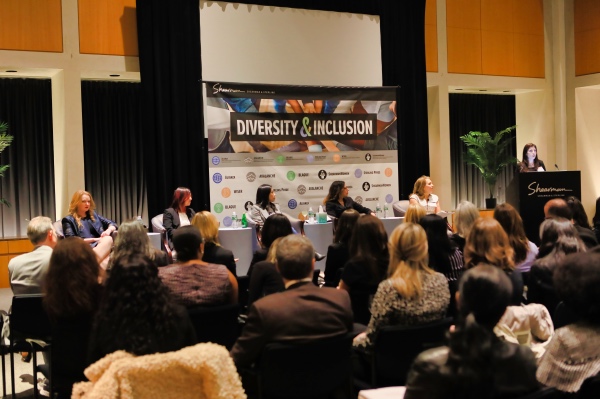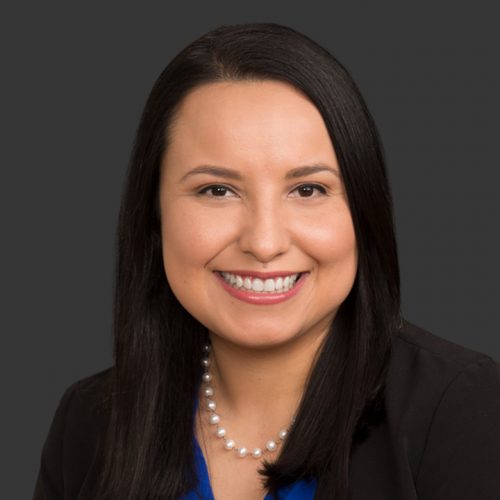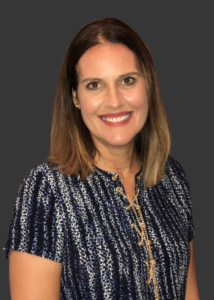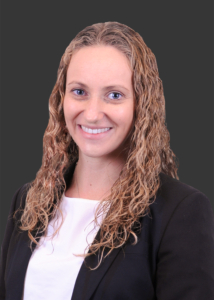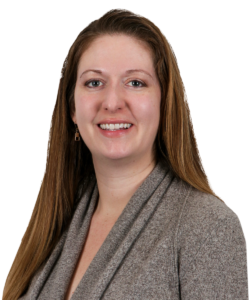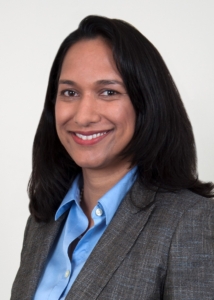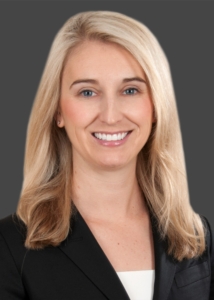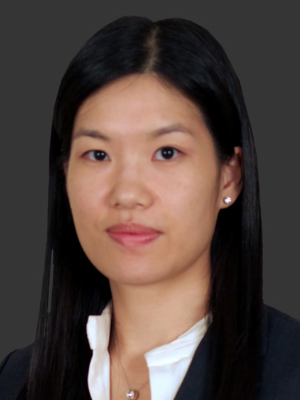 “As I was progressing within the BigLaw structure, the most important thing was not defining my success by the way that some tend to view it,” says Grace Lee. “I resisted my initial tendency to buy into the notion that if I didn’t make partner, that was somehow failure, or spoke to my skillset or my value.”
“As I was progressing within the BigLaw structure, the most important thing was not defining my success by the way that some tend to view it,” says Grace Lee. “I resisted my initial tendency to buy into the notion that if I didn’t make partner, that was somehow failure, or spoke to my skillset or my value.”
Lee shares on defining your own success, aligning with your personal priorities, and challenging the stereotypes of who you need to be in the role.
From Literature to Law
Lee contemplated a path in comparative literature, but was hesitant to commit to a life in academia. She also had been considering law school and discovered that law fulfilled her interest in causes for justice and allowed her to apply her literature skillsets.
“As a comparative literature major, I did a lot of exercises in explicating texts—you take a passage from a literary work, consider why the author chose the words they did, and where it fits in the broader context of the work,” says Lee. “In legal work, I was interested in interpreting words—words in statutes and court decisions. And making arguments about how certain language should be interpreted, based on word choices and the context, to support a thesis.”
Now in her 15th year at Shearman & Sterling (S&S) in New York and D.C., she is an industry expert—working with financial institutions and corporations on securities and antitrust litigation, commercial litigation, and regulatory investigations.
Defining Her Own Success
“Don’t buy into how other people define success. If you have a view of where you want to be in five or ten years, stay true to that,” says Lee, “as opposed to feeling like you need to be or do something that might be completely divorced from what makes you professionally and personally satisfied.”
While attaining partnership was a meaningful step in her career, it does not define her success, and she points out that many smart, successful people do not opt into or attain partnership.
“I think success is a very personal thing. For me, being able to have the different spaces of my life come together is success,“ she notes. “I’m able to have a career that I find fulfilling and kids who are fairly well adjusted. My kids see that what I do is not at their expense, and that my professional space means something to me.”
Aligning With Your Personal Priorities
For her personally, becoming a parent changed and clarified her priorities in a way that she never anticipated.
“I had a vision of the type of parent I wanted to be, and the type of lawyer I wanted to be,” says Lee. “I also realized that if I couldn’t be the parent that I wanted to be, then I wasn’t going to be happy even if I succeeded as a lawyer, and that became my guiding principle.”
To make this work, Lee did her best to fulfill her visions of both roles. She prioritized coming home to put her children to bed every night, and then working a second shift, often late into the night. “What that meant was that what could have been a work day that ended at 9 or 10 pm if I worked through the evening in the office became a work day that often ended well past midnight, because I took the time to go home, spend a little time with them, and put them to bed.” But for Lee, the personal sense of having given something the best that she could under the circumstances, was what was the most important.
“In order for me to not be resentful of the fact that I have a demanding job but instead grow in it, I had to make sure that I wouldn’t look back 20 years from then and feel that I had sacrificed my values as a parent to be a lawyer. I gave my best to both roles so that, many years from now, I hopefully wouldn’t feel that I had pursued one at the expense of the other and question those choices.”
Knowing her choice is her own, she emphasizes that your own priority is never wrong, whatever it is—it’s about aligning your life with your self-discerned priority.
“The trouble is when you’re trying to do something that doesn’t align with your values just because you feel like you have to do it,” says Lee. “I think that’s where the discord and the struggles really materialize.”
Lee finds it helpful to introduce the two parts of her life to each other. “After a long week, the physical office building was not the place I would have chosen to go to on a weekend. But it was important for my kids to be able to visualize me at work during the day, where I spend more time than I do with them.” So on some weekends, Lee brought her kids into the office where they would walk through the halls, sit at her desk and pretend that they were working. Lee also naturally incorporates her job as a parent in her conversations at work.
“Some people—especially women at least as I have observed—shy away from talking about their kids at work because they think they will be taken as less committed. I want people to understand that I have another demanding job that I absolutely love. It’s important for me to feel that my work is a safe space where I can talk about my kids, and the challenges and the demands of parenthood instead of pretending that I don’t have those issues.”
That openness has also paved the way for real meaningful discussions with mentors who have helped her navigate the intensity of BigLaw while striking the balance she personally seeks.
“So many great partners who have been mentors and friends over the years really helped me as I was trying to figure out my priorities and my definition of success. They didn’t just tell me what to do to get to the next step in BigLaw. They asked me what I wanted in life and in my career and shared their personal stories. Those discussions could get very granular—like, ‘What are your stressors? Let’s identify what they are, and see if it’s solvable.’” Even when the stressor was outside of Lee’s control, being able to identify it helped more than just feeling stressed.
Her mentors have also often become her sponsors, advocating for her and helping her to advance in the organization and with clients.
Growing Through The Process
“Take on as much as you think you can reasonably handle. And then stretch that a little. See how that works. And if that works, stretch it a little more. Do the very best to not turn down work,” says Lee, who focuses on the notion of building her personal value rather than billing hours.
“My brand and my value come down to my experience. The level of experience and breadth of different types of cases you get because you’re working more and stretching a little is huge. That experience becomes a big part of your value as a lawyer.”
For Lee, it’s not a particular case or moment that has been rewarding for her, but the relationships and overall growth that come with the process of working with her teams and clients to solve issues. “It’s the journey from Point A to Point B, from Point B to Point C, and so on, and then seeing the growth from Point A to Point X. It’s not any single moment, but it’s many blocks of moments of where I was and where I am now.”
Being Yourself, Not an Expectation
Though Lee works with many women, the industry and partnership ring are more male-dominated, so she values that her own trajectory helped to set an important precedent.
“It’s natural to look for someone you can identify with in the role you want to be in. I hope that I might be able to be that person for some.”
Just as Lee rejects the notion of adopting anyone else’s idea of success, she also challenges the notion that you have to be anyone else’s version of a lawyer.
Especially as she became more senior, Lee confronted expectations about how a successful lawyer looks and acts—such as the stereotype of litigators being loud and argumentative—but those expectations didn’t always match the ways that Lee speaks or acts. Lee believes that you don’t have to fundamentally change who you are, or embody certain mannerisms every day, to be an effective advocate. “Having people from different backgrounds and with different tendencies in the leadership roles helps dismantle that and challenge that notion.”
Playing By Ear
Lee played the violin as a child, and as a parent follows the Suzuki Method with her children, which teaches children to pick up music through exposure and repetition before actually reading music, akin to how they pick up their mother tongue before they learn how to read.
With the method being based upon a parent-teacher-child triangle, Saturdays and even family summer holidays have often been focused around music classes and Suzuki camp. “It’s a refreshing change of pace. In my kids’ violin instructions, we are much less concerned about how quickly they can master something than we are at how perfectly they can learn it. An entire month can be spent dedicated to making sure they can play one musical phrase correctly.” Lee also loves how music brings her family together, including playing violin duets with her children.
Rounding back to literature, Lee is looking forward to reading a book she picked up some months ago at a local bookstore. “It was a ‘blind date’ book where the book is wrapped and you don’t know what it is, but it instead lists other books of similar sentiments. I loved the idea of it and all of the books that were listed on the wrapper, so picked it up with a lot of anticipation.”
By Aimee Hansen

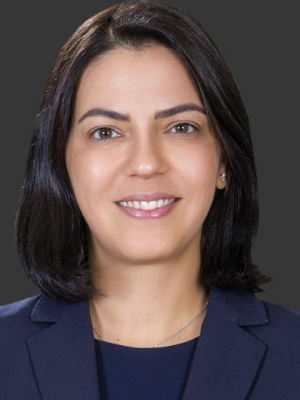
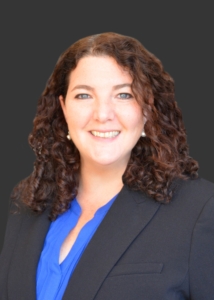 While you can’t choose your circumstances, you can choose how you react to them, says Shearman & Sterling’s Emma Maconick.
While you can’t choose your circumstances, you can choose how you react to them, says Shearman & Sterling’s Emma Maconick.